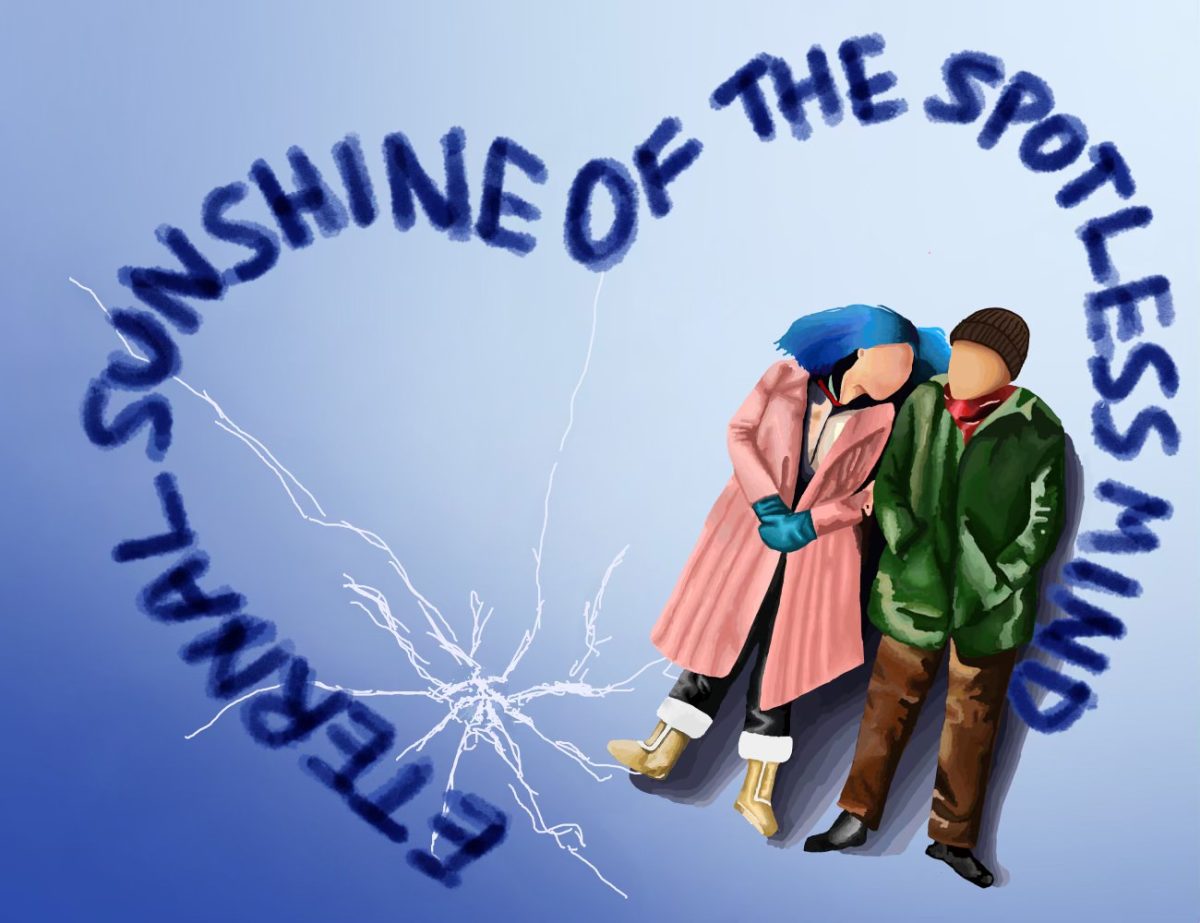This Valentine’s Day, it’s important to keep those we love in mind — some, however, may be inclined to disagree.
“Today is a holiday invented by greeting card companies to make people feel like crap,” Joel Barish (Jim Carrey) says in 2004’s “Eternal Sunshine of the Spotless Mind,” grumbling during a mindless commute.
Despite his usual routine, something sparks Joel to hurriedly take a different train than originally planned, almost like it was fate. Such spontaneity encapsulates “Eternal Sunshine,” which takes you off the beaten path on a journey where you can change your fate — and even destroy it.
This cult classic follows two lovers who seek to erase each other from their memories — literally, with a cranial procedure. Clementine Kruczynski (Kate Winslet), Joel’s partner with a spirit as striking as her hair, makes the impulsive decision to manually remove all her memories of the couple’s withering relationship.
Under the anything-but-careful guard of the memory-erasing firm’s employees (Kirsten Dunst, Mark Ruffalo and Elijah Wood), Joel follows in Clementine’s footsteps. The film explores the inner workings of Joel’s mind as Clementine slowly disappears from his memory, making his past as unknown as his future.
Such a concept is as bizarre as it sounds. In Joel’s mind, it rains indoors, faces and locations disappear and he teleports through time. The mastermind behind “Eternal Sunshine” is none other than celebrated and revered screenwriter Charlie Kaufman. Before this film, he had written the surrealist “Being John Malkovich” and “Adaptation,” starring Nicolas Cage as Kaufman himself. Kaufman has a reputation for perplexing the mind and bending the rules through his work, and it all comes together in “Eternal Sunshine,” an absurd yet approachable work of art.
The introverted Joel is often outshone by Clementine’s fiery attitude, yet his silence speaks volumes. Carrey and Winslet have spectacular chemistry as two characters who loathe each other. All the while, their quarrels and quirks make their dynamic even more intriguing, with such a relationship showing love’s hidden weaknesses and strengths. Can we truly take away the pain of heartbreak, and is it worth it in the end to take that pain away?
The execution of “Eternal Sunshine” makes this question one that is not as existential as one would think, using humor and a dash of charm to keep its audience open-minded. The film tells a love story, but it also tells of a surreal encounter with the unspeakable — our inner thoughts — and our control over such a treasure. This film has a ridiculous amount of heart put into it, making such a nonlinear narrative more accessible than a film trying to outsmart its audience.
“Blessed are the forgetful, for they get the better even of their blunders,” Dunst’s character toasts throughout the film, quoting philosopher Friedrich Nietzsche. Maybe to forgive is to forget, but why bother when you can simply forget all of your pain away? It’s up to you to decide to keep those you love — or have loved — in mind, whether you want to erase them or not.










